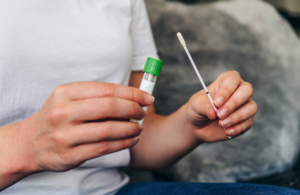Transparency and public engagement are essential to demonstrating that data is being used for public benefit
News story
Today we are publishing the findings of a dialogue with more than 100 members of the public about how to make sure health and care data is used in ways that benefit people and society.

Today we are publishing the findings of a dialogue with more than 100 members of the public about how to make sure health and care data is used in ways that benefit people and society.
The National Data Guardian (NDG) will use the insights to develop guidance to support people making decisions about access to data for research and innovation.
The report is part of the Putting Good into Practice project, which is co-funded by the National Data Guardian for Health and Care, Understanding Patient Data (UPD) and UK Research and Innovation’s Sciencewise programme.
Key findings of the report include:
-
Transparency cannot be separated from public benefit. It is not an add-on or nice to have. Public benefit can only be demonstrated if the value of using data is explained to society.
-
To demonstrate public benefit, transparency is required throughout the whole data life cycle. This includes during collection, storage, assessment and use of data, not just at the point of an application or decision being made to use data.
-
Public benefit is undermined if authentic public engagement is not integrated into decisions about use of data. This means engaging people from a cross-section of society in assessing how data is used.
Areas that matter most to dialogue participants:
-
Being ambitious for the use of health and care data in research and innovation. Public benefit can be achieved through using data for collaboration, exploratory research, and new developments, such as drugs, treatments and services.
-
Identifiable and sensitive data should be treated with the utmost care. If it is, it has the potential to bring public benefits.
-
The benefits from the use of health and social care data must be fairly distributed, with protections against discrimination and unjustified geographic disparities.
-
Safeguards are needed to protect society from data manipulation, especially where data could be used to achieve political or financial ends.
-
Public benefit must outweigh profit, with profitable uses of data rigorously scrutinised before data is used.
Previous research has shown that ‘public benefit’ is the crucial condition for most members of the public to support the use of health and care data for purposes beyond their own individual care. However, what exactly is meant by public benefit is often not clear, so the NDG and UPD wanted to find out more, with a view to producing practical guidance that would help organisations evaluate public benefit. The guidance will encourage greater consistency for decisions about whether health and care data should be used for research, planning and innovation.
The public dialogue was designed and managed by deliberative engagement specialists Hopkins Van Mil and supported by Sciencewise. It involved 112 participants recruited in a 50-mile radius from four locations: Great Yarmouth, Stockport, Plymouth and Reading. Each participant attended five online dialogue events, with the opportunity to interact and discuss the topic with policymakers and specialists before coming to their own conclusions and recommendations. The dialogue was independently evaluated by 3KQ.
A cross section of the original dialogue participants will reconvene this summer as the NDG develops the new statutory guidance. Participants will discuss the draft guidance with data users, data custodians and policymakers to check it meets their expectations.
Published 14 April 2021


